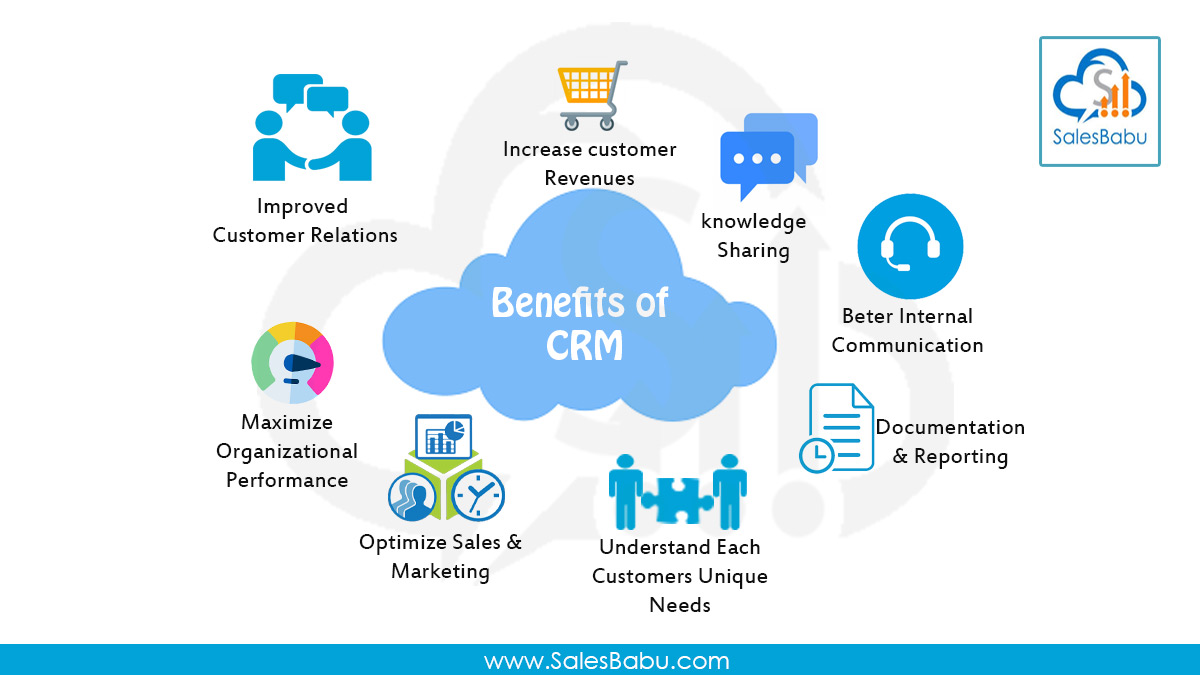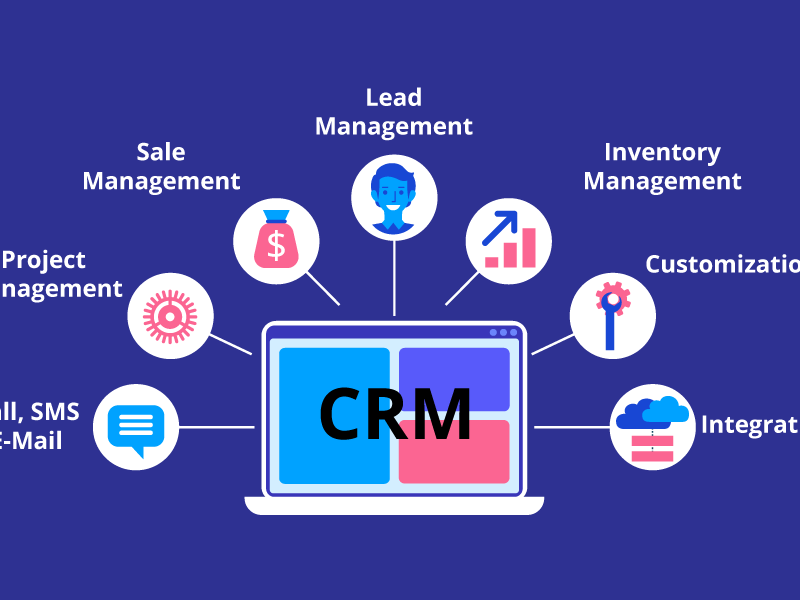In today’s competitive business landscape, the ability to build and maintain strong customer relationships is more critical than ever. Customer Relationship Management (CRM) systems have emerged as a powerful tool for businesses looking to enhance customer satisfaction, boost sales, and drive growth.
By centralizing customer data, streamlining communication, and providing valuable insights, CRM solutions help companies understand their customers better and deliver personalized experiences. This article explores why CRM is not just a nice-to-have but a necessity for businesses aiming to thrive in an increasingly customer-focused market.
Why CRM is the Key to Business Growth
Customer Relationship Management (CRM) systems are essential tools for businesses aiming to achieve sustainable growth. By centralizing customer data, streamlining processes, and enhancing customer interactions, CRMs provide the insights and tools needed to build stronger, more profitable relationships.
In this section, we will delve into the specific ways that CRM can drive business growth, including improved customer retention, enhanced sales efficiency, and better market insights.
Enhanced Customer Retention
Customer retention is a critical factor in business growth. A CRM system helps businesses maintain and deepen relationships with their customers by providing a 360-degree view of each customer’s interactions, preferences, and purchase history.
This comprehensive data allows companies to tailor their communications and offers, leading to higher satisfaction and loyalty. Moreover, by automating follow-up processes and personalized marketing, CRMs ensure that customers feel valued and engaged, reducing churn rates and increasing lifetime value.
Improved Sales Efficiency
Sales efficiency is another key area where CRM systems excel. CRMs automate many of the manual tasks involved in the sales process, such as lead tracking, customer communication, and sales forecasting. This automation not only saves time but also reduces the likelihood of errors.
Sales teams can focus on building relationships and closing deals rather than on administrative tasks. Additionally, CRMs provide sales managers with real-time insights and analytics, enabling them to make data-driven decisions and optimize their strategies for maximum impact.
Better Market Insights
Market insights are crucial for making informed business decisions. CRMs gather and analyze vast amounts of customer data, providing valuable insights into market trends, customer behavior, and emerging opportunities. These insights can help businesses refine their products, tailor their marketing efforts, and identify new market segments.
By staying ahead of the curve, companies can proactively address customer needs and preferences, gaining a competitive edge in the market. Furthermore, CRMs can integrate with other business systems to provide a holistic view of the market, enabling more accurate and strategic planning.
| Key Benefit | Description |
|---|---|
| Enhanced Customer Retention | Improves customer satisfaction and loyalty through personalized interactions and automated follow-ups. |
| Improved Sales Efficiency | Automates sales processes, reduces administrative tasks, and provides real-time analytics for better decision-making. |
| Better Market Insights | Provides valuable data on market trends and customer behavior, enabling strategic planning and proactive market positioning. |
Why is CRM important for business?

Customer Relationship Management (CRM) is crucial for businesses because it helps in managing customer interactions and data throughout the customer lifecycle.
By centralizing customer information and interactions, CRM systems provide a comprehensive view of each customer, enabling businesses to deliver personalized and efficient services. This leads to enhanced customer satisfaction and loyalty, which in turn can drive increased sales and revenue.
Additionally, CRM systems automate routine tasks, freeing up employees to focus on more strategic activities. CRM also supports data-driven decision-making by providing valuable insights through analytics, which can help businesses identify trends, opportunities, and areas for improvement.
Improving Customer Satisfaction and Loyalty
CRM systems help businesses build stronger relationships with customers by providing a unified platform to manage all customer interactions. This ensures that every touchpoint, from initial contact to after-sales support, is handled consistently and effectively.
By having access to comprehensive customer profiles, businesses can tailor their communications and offerings to meet individual needs and preferences. For example:
- Personalized marketing campaigns can be created based on customer behavior and preferences.
- Customer service representatives can quickly access past interactions and resolve issues more efficiently.
- Loyalty programs can be enhanced by offering rewards and promotions that are relevant to each customer.
Enhancing Sales and Revenue
CRM systems play a vital role in sales management by providing tools to track leads, manage sales pipelines, and forecast revenue. These features help sales teams prioritize their efforts and focus on the most promising opportunities.
By automating routine sales tasks, CRM systems also reduce the administrative burden on sales teams, allowing them to spend more time on customer-facing activities. For instance:
- Sales managers can monitor the progress of each deal and provide timely guidance to their teams.
- Automated lead scoring and prioritization can ensure that the most promising leads are pursued first.
- Real-time analytics provide insights into sales performance, enabling businesses to identify and address bottlenecks in the sales process.
Fostering Data-Driven Decision Making
CRM systems are rich sources of data that can be leveraged for strategic planning and decision-making. By integrating various data points, such as customer demographics, purchase history, and engagement levels, businesses can gain valuable insights into customer behavior and market trends.
This data-driven approach helps in making more informed decisions, optimizing marketing strategies, and improving overall business performance. For example:
- Market segmentation can be refined to target specific customer segments more effectively.
- Product development can be guided by customer feedback and preferences, leading to more successful product launches.
- Risk management can be enhanced by identifying and addressing potential issues before they become major problems.
What are the advantages of growth in your business in CRM system?
The advantages of growth in your business through a Customer Relationship Management (CRM) system are significant and multifaceted. Here are some detailed points:
Enhanced Customer Insights
A CRM system collects and organizes customer data from various sources, providing a comprehensive view of each customer. This data can include purchase history, communication preferences, and interaction records. By having this information at your fingertips, you can:
- Identify customer needs and preferences more accurately, allowing for personalized marketing and sales efforts.
- Analyze buying patterns and behaviors to forecast future trends and make informed business decisions.
- Improve customer service by quickly accessing customer history and resolving issues more efficiently.
Improved Operational Efficiency
CRM systems streamline and automate many business processes, leading to increased efficiency and productivity. This can be particularly beneficial as your business grows. Some key benefits include:
- Automating routine tasks such as data entry, follow-up emails, and appointment scheduling, freeing up time for more strategic activities.
- Centralizing customer information and making it accessible to all relevant departments, ensuring everyone is on the same page.
- Providing tools for better project management and collaboration, which can enhance team productivity and performance.
Scalability and Flexibility
As your business grows, a CRM system can adapt to meet your changing needs. This scalability ensures that you can manage your customer base effectively, regardless of its size. Key advantages include:
- Adding new modules and features as needed, such as marketing automation, sales forecasting, and customer service tools.
- Integrating with other business applications, such as accounting software and e-commerce platforms, to create a seamless workflow.
- Supporting multi-channel engagement, allowing you to connect with customers through various touchpoints, including social media, email, and phone.
How do elements and processes of CRM help in growing business?
Customer Relationship Management (CRM) is a comprehensive strategy that helps businesses grow by enhancing customer satisfaction, improving sales processes, and optimizing operational efficiency.
The key elements and processes of CRM can be broken down into several areas that contribute to business growth.
Enhancing Customer Engagement and Satisfaction
Effective CRM systems enable businesses to build and maintain strong relationships with their customers. By collecting and analyzing customer data, companies can gain insights into customer preferences, behaviors, and needs.
This data-driven approach allows businesses to personalize their interactions, making customers feel valued and understood. Personalization can take many forms, such as tailored marketing messages, customized product recommendations, and proactive customer service.
- Data Collection and Analysis: CRM systems gather data from various touchpoints, including sales, marketing, and customer service interactions. Advanced analytics tools help identify patterns and trends, enabling businesses to make data-driven decisions.
- Personalized Communication: With CRM, businesses can send targeted emails, offers, and promotional materials that are relevant to each customer. This increases the likelihood of engagement and conversion.
- Customer Feedback: Regularly collecting and acting on customer feedback helps businesses improve their products and services, leading to higher customer satisfaction and loyalty.
Improving Sales Efficiency and Effectiveness
CRM systems streamline the sales process, making it more efficient and effective. Sales teams can access comprehensive customer information, track leads, and manage opportunities in a single platform. This centralized approach enhances collaboration and ensures that no opportunities are missed.
Additionally, CRM tools provide real-time insights into sales performance, allowing managers to make informed decisions and adjust strategies as needed.
- Lead Management: CRM systems help identify and prioritize leads, ensuring that sales teams focus on the most promising prospects. Automating lead nurturing processes can also improve conversion rates.
- Sales Pipeline Management: With a clear view of the sales pipeline, teams can better predict revenue and manage resources. CRM tools help track the progress of each deal and provide alerts for follow-up actions.
- Performance Analytics: Real-time dashboards and reports provide insights into sales performance, helping managers identify trends, track KPIs, and make data-driven decisions.
Optimizing Operational Efficiency
CRM processes not only improve customer-facing activities but also enhance internal operations. By automating routine tasks and integrating with other business systems, CRM can reduce manual efforts, minimize errors, and improve overall efficiency.
This allows employees to focus on more strategic activities that drive business growth.
- Automation of Routine Tasks: CRM systems can automate tasks such as data entry, email campaigns, and follow-up reminders, freeing up time for more value-added activities.
- Integration with Other Systems: Integrating CRM with other business systems, such as ERP and marketing automation tools, ensures seamless data flow and enhances operational efficiency.
- Process Improvement: Continuous monitoring and analysis of CRM data can identify bottlenecks and inefficiencies in business processes, leading to process improvements and cost savings.
Why is CRM growing?
CRM (Customer Relationship Management) is experiencing substantial growth due to several key factors. The primary drivers include the increasing importance of customer experience, the integration of advanced technologies, and the evolving business landscape.
Modern businesses are increasingly recognizing that CRM is not just a tool for managing customer data but a comprehensive strategy for enhancing customer interactions and driving revenue.
As a result, CRM solutions are becoming more sophisticated and adaptable, catering to the diverse needs of businesses across various industries. This widespread adoption and continuous innovation are contributing to the rapid growth of the CRM market.
Enhanced Customer Experience
CRM systems are crucial in delivering a seamless and personalized customer experience. These systems collect and analyze vast amounts of customer data, allowing businesses to better understand their customers’ needs and preferences.
By leveraging this data, companies can tailor their products, services, and communications to meet individual customer expectations. This results in higher customer satisfaction, increased loyalty, and improved customer retention rates.
- Personalized Marketing: CRM enables businesses to segment their customer base and deliver targeted marketing campaigns that resonate with specific groups.
- Consistent Communication: CRM ensures that all customer interactions are consistent across different touchpoints, from in-store visits to online purchases and customer service calls.
- Proactive Support: CRM systems can detect potential issues before they become problems, allowing companies to proactively address customer concerns and enhance the overall customer experience.
Integration with Advanced Technologies
The integration of advanced technologies such as artificial intelligence (AI), machine learning, and the Internet of Things (IoT) is revolutionizing the CRM landscape. These technologies enhance CRM systems by providing deeper insights, automating routine tasks, and enabling more efficient and effective customer management.
For example, AI can analyze customer behavior patterns to predict future actions, while IoT devices can provide real-time data on product usage and customer interactions.
- AI-Driven Insights: AI algorithms can process large datasets to uncover hidden trends and provide actionable insights that help businesses make informed decisions.
- Automated Processes: Machine learning can automate mundane tasks such as data entry and customer segmentation, freeing up staff to focus on more strategic activities.
- Real-Time Data: IoT devices can collect and transmit real-time data, allowing businesses to respond quickly to customer needs and preferences.
Changing Business Models and Market Dynamics
The evolving business landscape is another significant driver of CRM growth. In today’s highly competitive market, businesses must adapt quickly to changing customer demands and technological advancements. CRM systems provide the agility and flexibility needed to navigate these challenges.
Additionally, the shift towards subscription-based and as-a-service models is driving the need for robust CRM solutions that can manage recurring revenue streams and customer relationships over the long term.
- Subscription-Based Models: CRM systems help businesses efficiently manage subscriptions, renewals, and upselling opportunities, ensuring a steady stream of recurring revenue.
- Customer-Centric Strategies: The focus on customer-centric strategies is pushing businesses to invest in CRM to build and maintain strong, lasting relationships with their customers.
- Global Expansion: As businesses expand into new markets, CRM systems enable them to manage and engage with customers across different regions and cultures effectively.
Frequently Asked Questions
What is CRM and How Does It Support Business Growth?
CRM, or Customer Relationship Management, is a strategy and technology that helps businesses manage and analyze customer interactions and data.
By centralizing customer information, CRM enhances customer service, streamlines processes, and provides valuable insights that drive targeted marketing efforts and customer retention, ultimately leading to increased revenue and business growth.
How Does CRM Improve Customer Retention?
CRM systems track customer interactions, preferences, and purchase history, enabling businesses to offer personalized experiences and timely support. This deep understanding of customer needs and behaviors fosters loyalty and satisfaction, reducing churn rates.
By consistently engaging customers with relevant content and offers, businesses can strengthen relationships and encourage repeat business, driving long-term growth.
Can CRM Help in Identifying New Business Opportunities?
Yes, CRM systems provide valuable insights into customer behavior and market trends. By analyzing data on customer interactions, purchasing patterns, and feedback, businesses can identify new opportunities for upselling, cross-selling, and expanding into new markets.
These insights help in tailoring marketing strategies and product offerings to meet evolving customer needs, driving sustainable business growth.
How Does CRM Enhance Sales Efficiency?
CRM automates and streamlines sales processes, providing sales teams with real-time access to customer data and sales histories. This enables more effective lead management, faster deal closures, and better collaboration among team members.
By reducing administrative tasks and providing actionable insights, CRM enhances sales efficiency, allowing teams to focus on building customer relationships and driving revenue.


